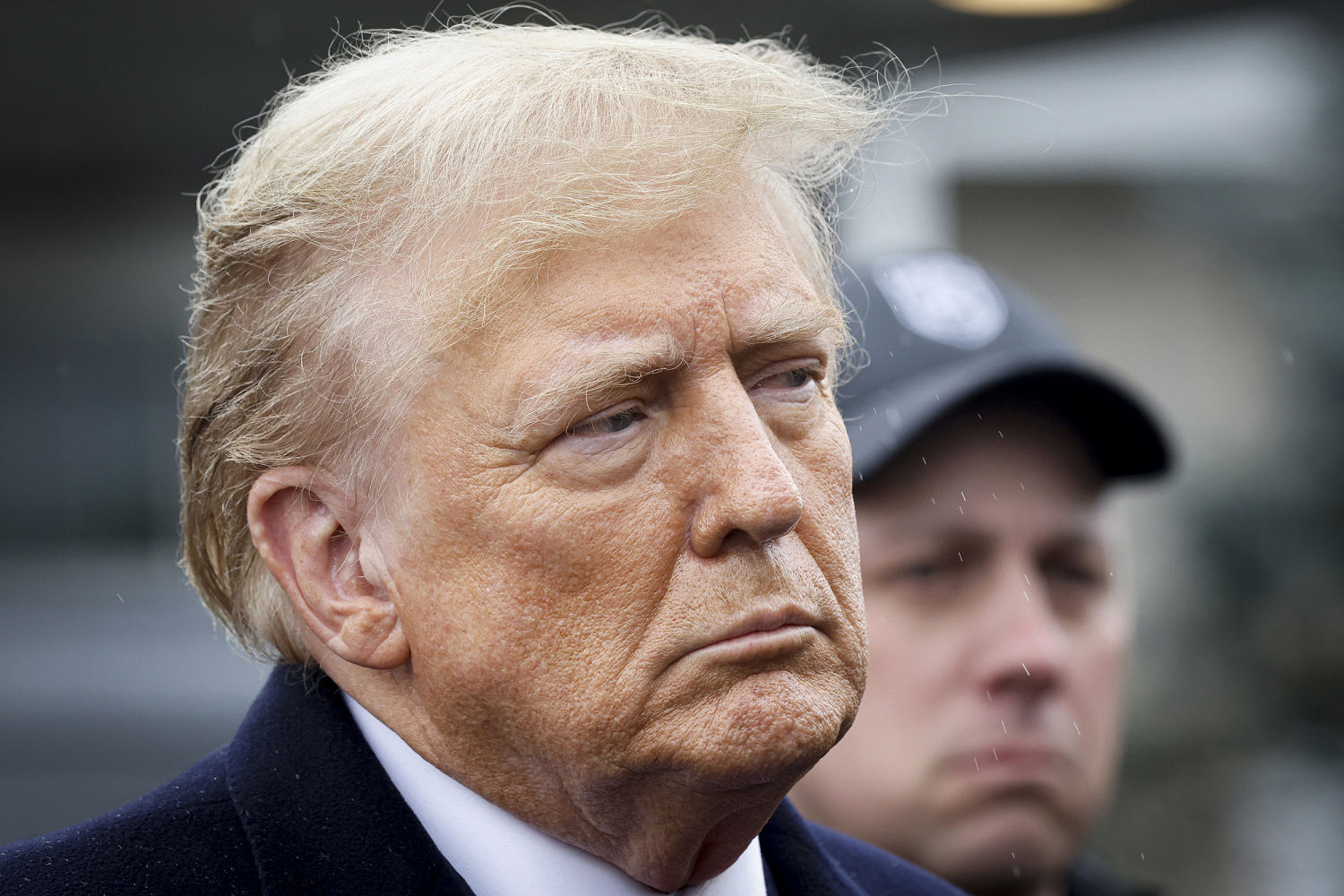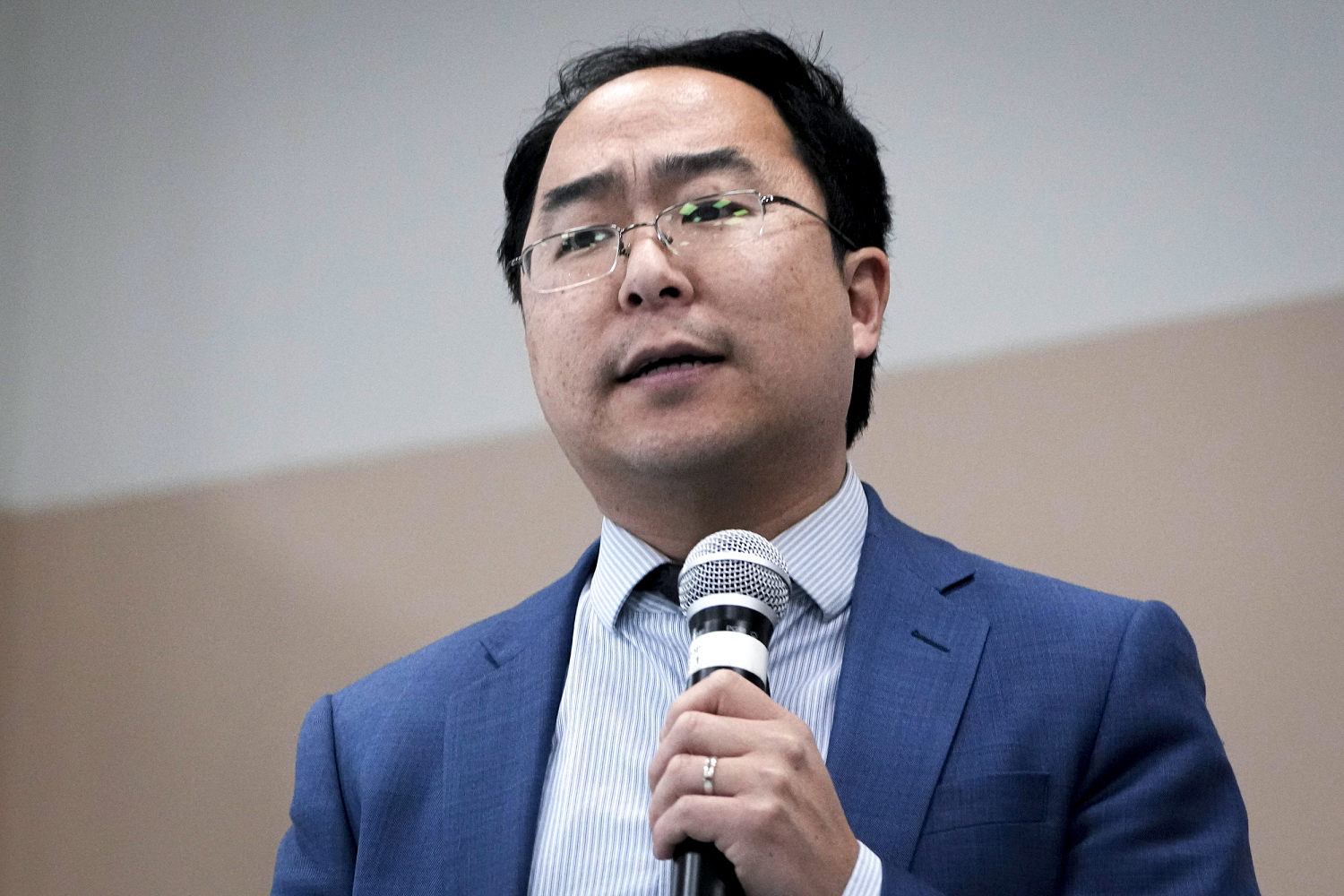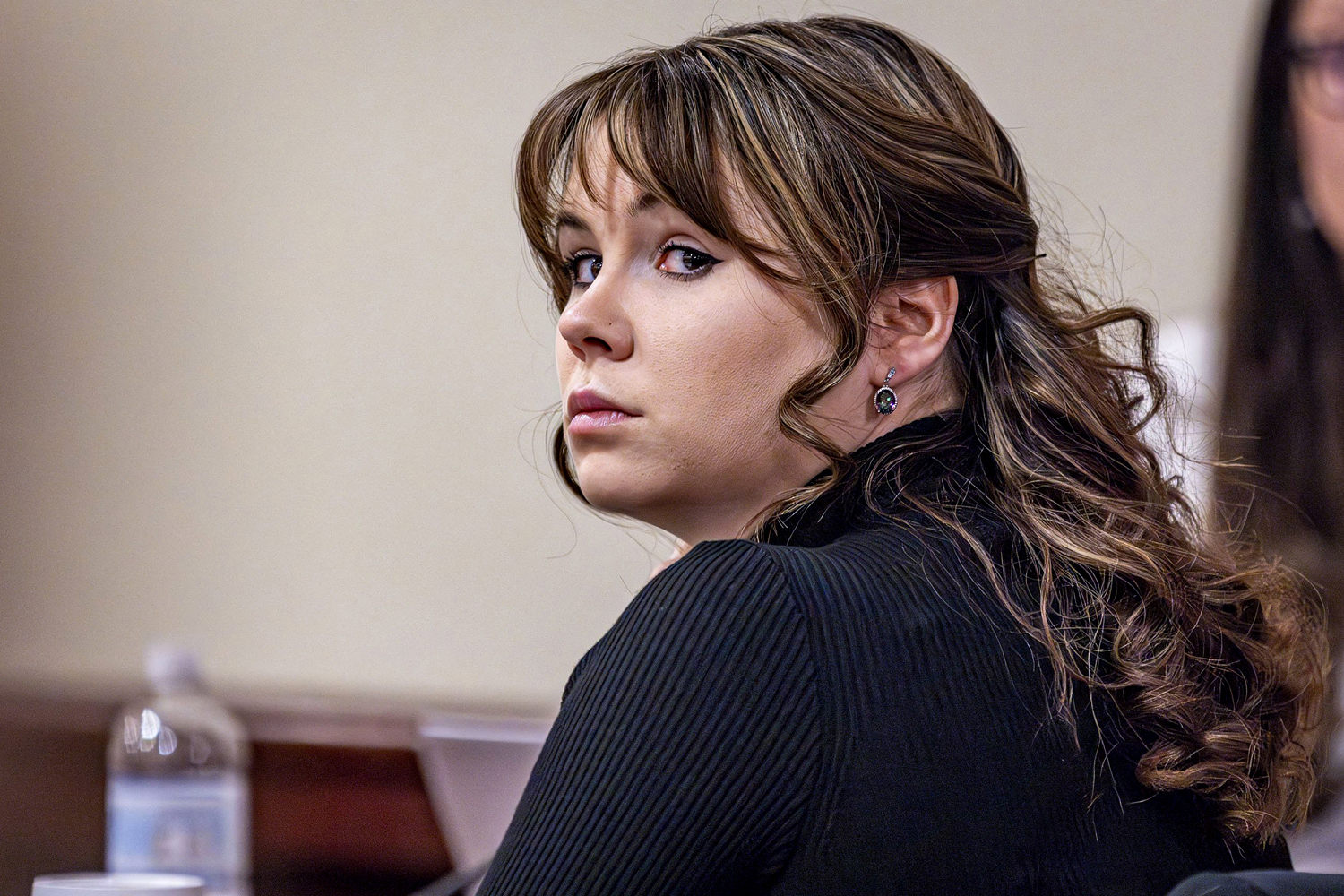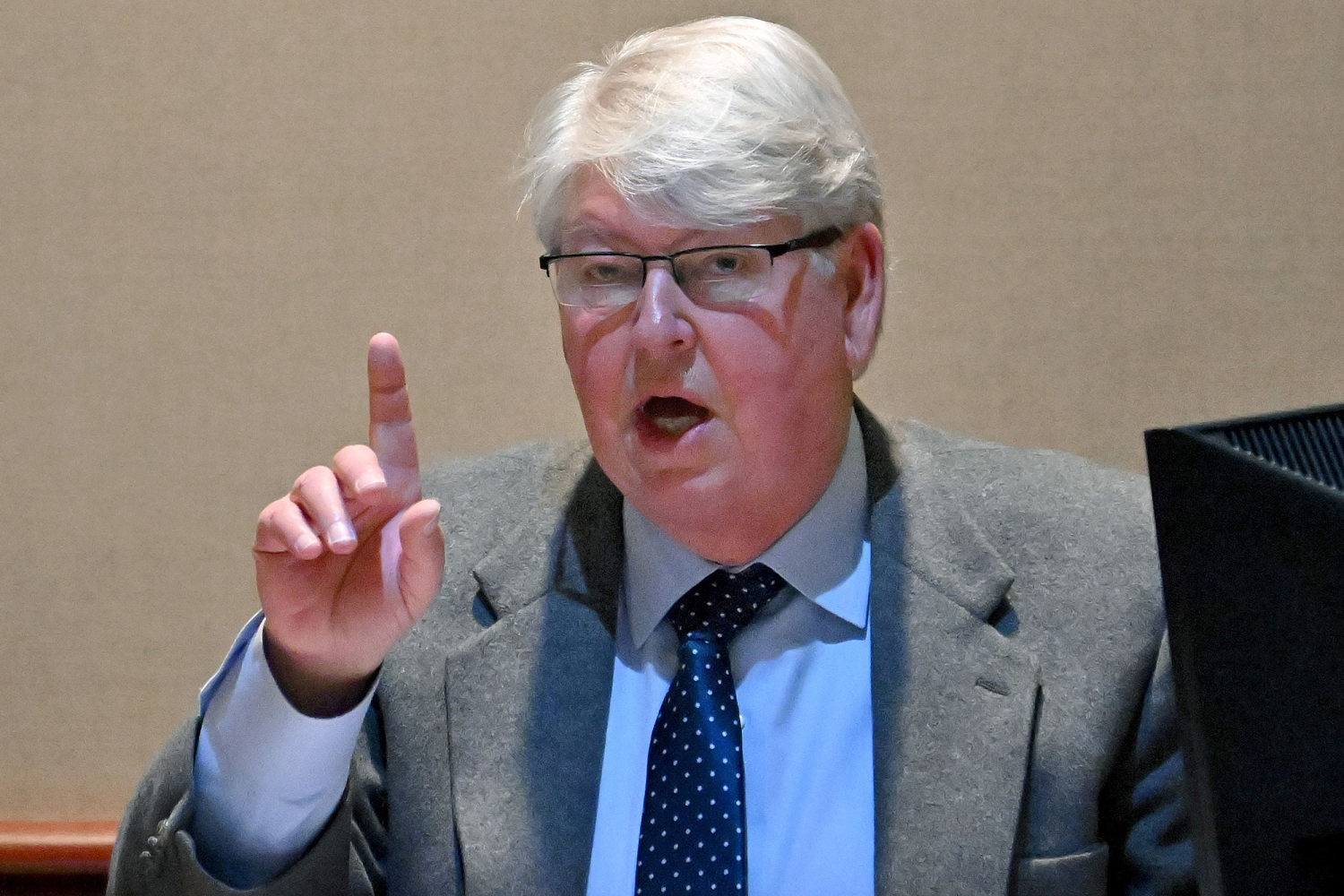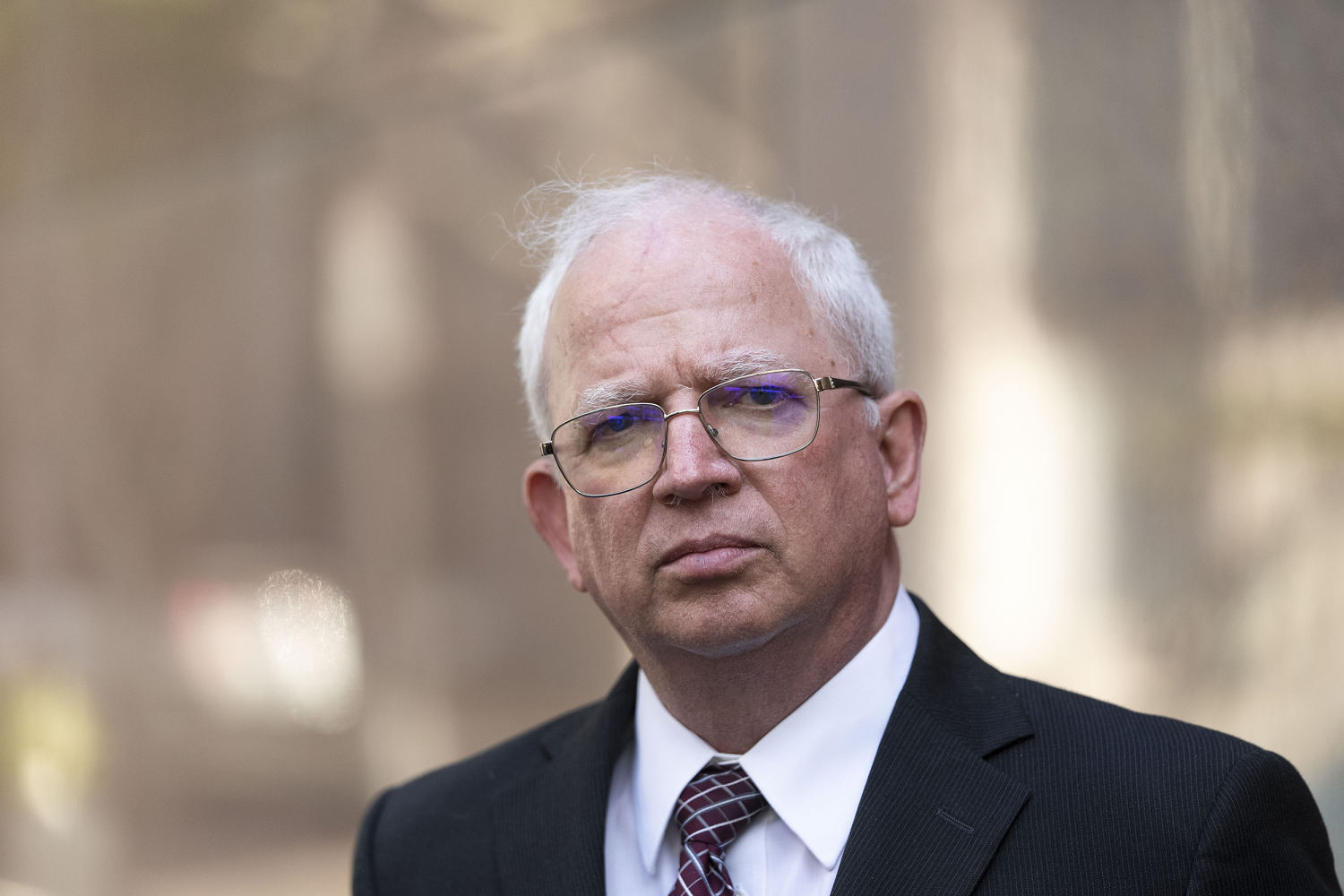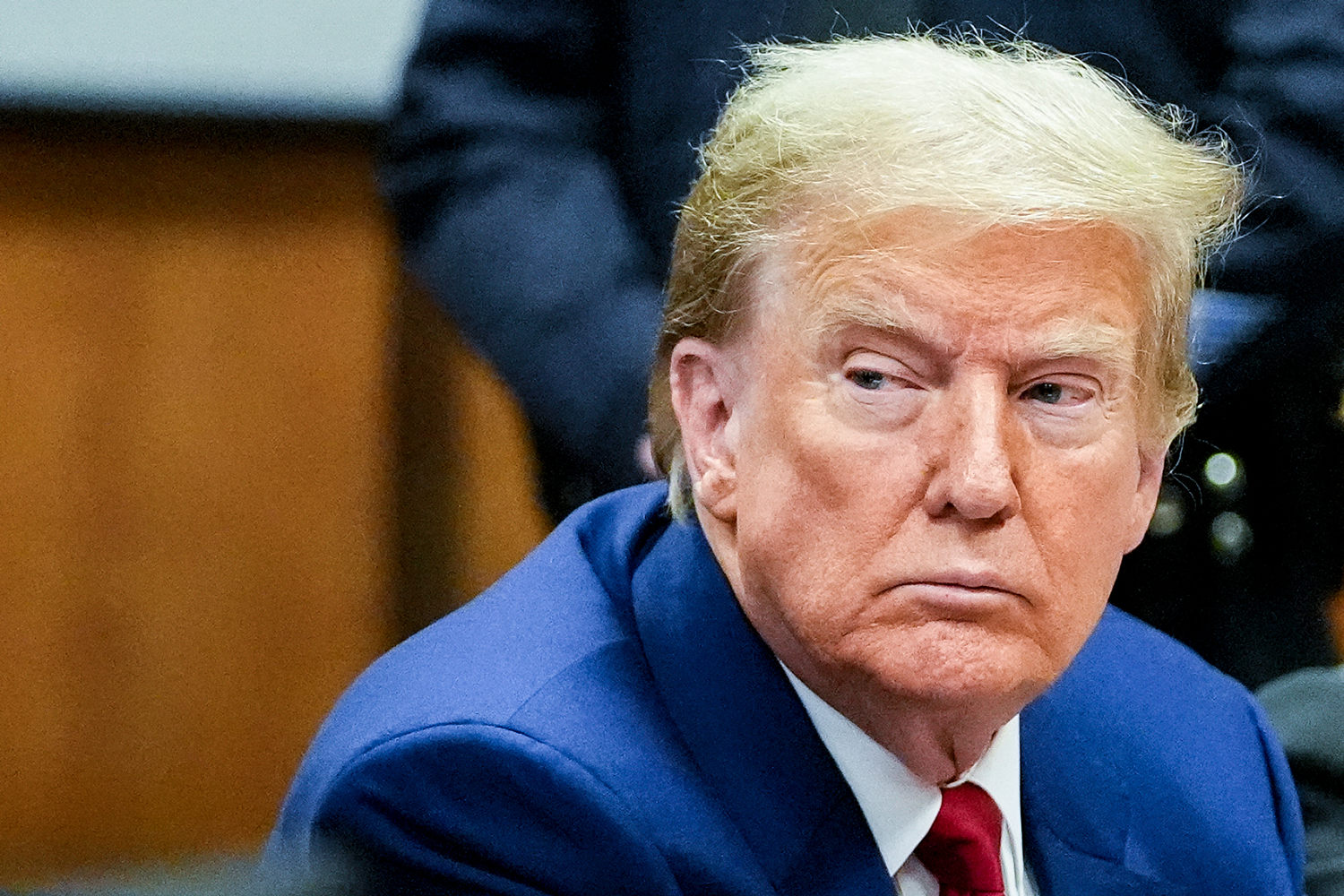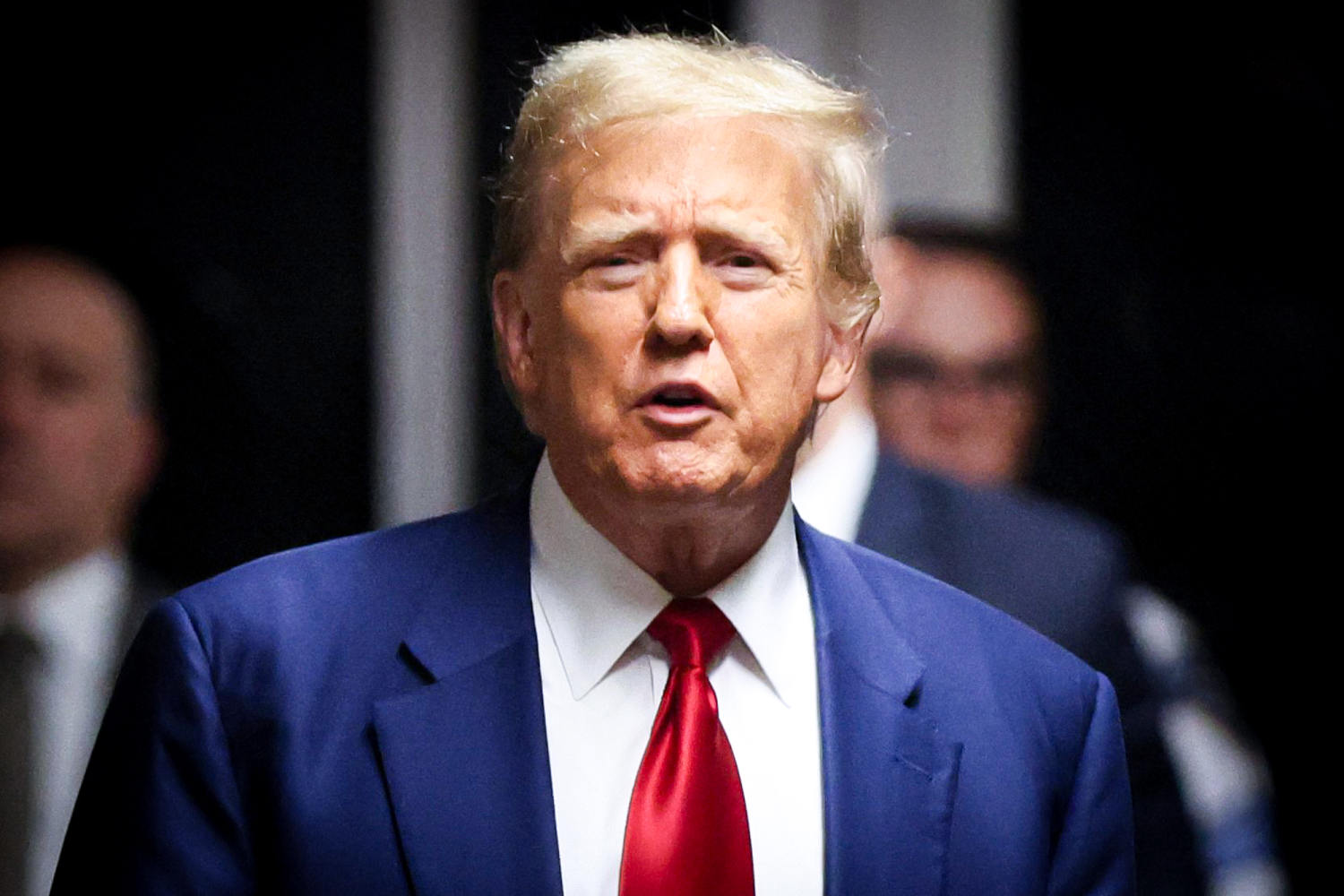The judge presiding over the New York criminal case against Donald Trump on Tuesday slapped the former president with a partial gag order.
The ruling from Judge Juan Merchan orders Trump to “refrain” from “making or directing others to make public statements about known or reasonably foreseeable witnesses concerning their potential participation” in the falsifying business records case, as well as about individual prosecutors, court staff, jurors and potential jurors.
The order does not apply to the judge or Manhattan District Attorney Alvin Bragg.
The judge said the move was necessary now because “the Defendant’s prior extrajudicial statements establishes a sufficient risk to the administration of justice” and “there exists no less restrictive means to prevent such risk.”
Trump campaign spokesman Steven Cheung called the order “unconstitutional” and argued that it prevents Trump from “engaging in core political speech, which is entitled to the highest level of protection under the First Amendment.”
Trump’s attorneys had argued in court filings that because he is the presumptive Republican nominee for president he “must have unfettered access to the voting public to respond to attacks from political opponents.”
Merchan said he was “unpersuaded” by those arguments, and that Trump’s public commentary on the case has gone “far beyond defending himself against attacks.”
The judge noted Trump’s past statements in this case and others included “threatening, inflammatory,” and “denigrating” language, and said similar attacks would “undoubtedly risk impeding the orderly administration of the Court.”
Merchan also suggested he had firsthand knowledge about being a subject of Trump’s comments, and cited “the nature and impact of the statements made against this Court and a family member,” in addition to others.
The ruling was handed down hours after Trump blasted the judge, the judge’s daughter, Bragg and former Trump lawyer Michael Cohen, a key witness in the case, on his social media platform Truth Social. The post referred to Cohen as a “liar and felon,” and also referred to a former prosecutor in the case, Mark Pomerantz, as a “dirtbag lawyer.”
Cohen said in a statement he was grateful for the judge’s action.
“I want to thank Judge Merchan for imposing the gag order as I have been under relentless assault from Donald’s MAGA supporters,” he said. “Nevertheless, knowing Donald as well as I do, he will seek to defy the gag order by employing others within his circle to do his bidding; regardless of consequence.”
Cohen pleaded guilty in 2018 to criminal charges that included making hush money deals for women who claimed to have had affairs with Trump.
The DA’s case is centered on payments Trump made to reimburse Cohen for the $130,000 he paid one of the women, adult film star Stormy Daniels, to stay quiet about her alleged 2006 sexual encounter with Trump.
Trump has denied that he slept with Daniels, but he has acknowledged repaying Cohen. He’s pleaded not guilty to charges that he “repeatedly and fraudulently falsified New York business records.”
The case is set to go trial April 15.
Merchan said “given that the eve of trial is upon us, it is without question that the imminency of the risk of harm is now paramount.”
Tuesday’s ruling is the third partial gag order Trump has been hit with in the past year. In the civil fraud trial that concluded in January, Judge Arthur Engoron ordered Trump and his attorneys not to talk about his law clerk or other court staffers after the former president’s insistence that the clerk was biased led to a “deluge” of threats against her.
Judge Tanya Chutkan, who is presiding over Trump’s federal election interference case in Washington, D.C., issued a ruling in October that bars him from trashing witnesses and individual prosecutors and court staff.
Chutkan said Trump could continue to “criticize the current administration and assert his belief that this prosecution is politically motivated.” But, she added, his “first amendment freedoms do not allow him to launch a pre-trial smear campaign against participating government staff, their families and foreseeable witnesses.”
An appeals court later narrowed the order, allowing Trump some leeway to speak out if a high-profile witness made disparaging comments about him. That case has been paused while the Supreme Court weighs Trump’s presidential immunity defense.
The Manhattan District Attorney’s Office had asked Merchan for the partial gag order last month, arguing that Trump “has a long history of making public and inflammatory remarks about the participants in various judicial proceedings against him, including jurors, witnesses, lawyers, and court staff.”
“Those remarks, as well as the inevitable reactions they incite from defendant’s followers and allies, pose a significant and imminent threat to the orderly administration of this criminal proceeding and a substantial likelihood of causing material prejudice,” Bragg’s office said at the time.
The gag order ruling was one of three that Merchan handed down Tuesday.
In one, he rejected Trump’s efforts to undo a new process for filing pre-trial motions. Merchan had changed the procedure after Trump’s attorneys tried raising a presidential immunity defense and asked the judge to delay the trial until after the Supreme Court ruled in the federal election interference case. The Trump request came just over two weeks before the hush money case was originally scheduled to go trial.
In response, Merchan said both sides had to ask him for permission to file any other motions. Trump’s attorneys argued that it would violate their client’s right to a fair trial. Merchan disagreed, saying he has the “inherent authority” to do so.
In the third ruling, Merchan shot down Trump’s motion asking that documents be unsealed and that public filings in the case be immediately visible on the court docket. The judge noted there’s a protective order barring some information from being released publicly and said “it is this Court’s understanding that everything that is normally maintained in a court file is currently contained in the public file.”
“To the extent Defendant believes that anything normally maintained that is not subject to the Protective Order or governing law, is not in the court file, he should identify the document to the Court and to the People. The Court will consider any objections and rule on the matter,” Merchan added.
News organizations, including the NBC News Group, had asked the judge to more promptly file the motions to the public docket and to put emails between the parties on the docket as well. The judge did not address the letter from the media organizations in Tuesday’s order.
